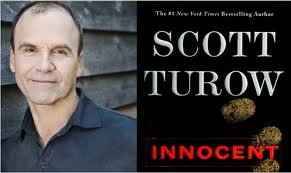 After acquiring social book networking and rating service Shelfari in 2008 and then announcing last week its takeover of GoodReads, the world’s largest site for “readers and book recommendations,” Amazon seems poised to corner the online market on book reviews and commentary. We’re not conspiracy theorists, but sometimes you can judge a book by its cover.
After acquiring social book networking and rating service Shelfari in 2008 and then announcing last week its takeover of GoodReads, the world’s largest site for “readers and book recommendations,” Amazon seems poised to corner the online market on book reviews and commentary. We’re not conspiracy theorists, but sometimes you can judge a book by its cover.
Online critics who have a healthy respect for the independent “voice of the customer” wonder why Amazon would seek to acquire the world’s largest independent book rating service when its own customer and reader reviews comprise an excellent source of crowdsourced reviews for books and other products.
What is daunting is that, according to published new reports, in November 2007, before Shelfari was bought, but not before Amazon had invested one million dollars in the company, the book service was accused of astroturfing by Tim Spalding, the creator of LibraryThing, a competing social networking book site.
 The Federal Trade Commission’s astroturfing regulations, called “the Guides” were published in 1980 and updated in 2009 to address social media and word-of-mouth marketing. The FTC considers reviews endorsement when reviewers or bloggers receive payment or in-kind payment such as free products. Such endorsement must be disclosed.
The Federal Trade Commission’s astroturfing regulations, called “the Guides” were published in 1980 and updated in 2009 to address social media and word-of-mouth marketing. The FTC considers reviews endorsement when reviewers or bloggers receive payment or in-kind payment such as free products. Such endorsement must be disclosed.
In a comment on another blog critical of Shelfari (primarily criticizing its “invitations” system), Josh Hug, then the Shelfari CEO, blamed the astroturfing on an intern not knowing better, and said that it had stopped.
 When you are an online merchandiser of books, among other items, acquiring a book rating service would seem to invite criticism or at least questions regarding the motivation behind controlling both ends of the value chain.
When you are an online merchandiser of books, among other items, acquiring a book rating service would seem to invite criticism or at least questions regarding the motivation behind controlling both ends of the value chain.
To draw a couple of analogies, how would we feel if Expedia owned a rating service for online travel booking companies, or if Microsoft acquired a company like CNET that rates and reviews software? Speaking of CNET, the CBS television network which owns CNET was caught pressuring its staff to recast their “best of show” vote at the Consumer Electronics Show for a competing cable television service (which ultimately won the award). The CEA wound up terminating CNET’s role in choosing the ward at CES going forward.
With the proliferation of user review services across the Web, including, for one example, DemandForce, which gathers user testimonials for dental practices, spas and salons, and automotive mechanics, the presence of third party aggregators is a relatively recent phenomenon. As far as we can tell, DemandForce does not own any of the dental practices, spas or salons or auto repair shops for whom it posts customer reviews. In other words, if Twentieth Century Fox owned a rating service that promoted its movies ahead of those from Paramount or Universal, well, you get the idea.
Of course, we understand that Amazon does not own the book properties that Shelfari or GoodReads’ members may review or recommend, at least not at this time. However, Amazon does, or may eventually, own other literary assets, in whole or in part, which would seem to require a “church and state” firewall to preserve the integrity of accepting and customer reviews and ratings to steer clear of the astroturf claim. Reviews sites must remain sympathetic to the consumer’s choice of where you might choose to buy your book titles.
 According to Scott Turow, writing in this weekend’s New York Times, under the title, “The Slow Death of the American Author,” this is a time of devastating transition. Last month, Turrow alerts, the Supreme Court decided to allow the importation and resale of foreign editions of American works, which are often cheaper than domestic editions. Until now, courts have forbidden such activity as a violation of copyright. Not only does this ruling open the gates to a surge in cheap imports, but since they will be sold in a secondary market, authors won’t get royalties. It seems almost every player — publishers, search engines, libraries, pirates and even some scholars — is vying for position at authors’ expense.”
According to Scott Turow, writing in this weekend’s New York Times, under the title, “The Slow Death of the American Author,” this is a time of devastating transition. Last month, Turrow alerts, the Supreme Court decided to allow the importation and resale of foreign editions of American works, which are often cheaper than domestic editions. Until now, courts have forbidden such activity as a violation of copyright. Not only does this ruling open the gates to a surge in cheap imports, but since they will be sold in a secondary market, authors won’t get royalties. It seems almost every player — publishers, search engines, libraries, pirates and even some scholars — is vying for position at authors’ expense.”
Take e-books. They are much less expensive for publishers to produce: there are no printing, warehousing or transportation costs, and unlike physical books, there is no risk that the retailer will return the book for full credit.
But instead of using the savings to be more generous to authors, the six major publishing houses — five of which were sued last year by the Justice Department’s Antitrust Division for fixing e-book prices — all rigidly insist on clauses limiting e-book royalties to 25 percent of net receipts. That is roughly half of a traditional hardcover royalty.
In the online world, such a hegemony of managing literary assets, their ratings, and their sales, has not yet been challenged by regulators. Like Facebook and privacy, Apple and iCloud, CBS and CNET, it all comes down to “trust?” [24×7]




















